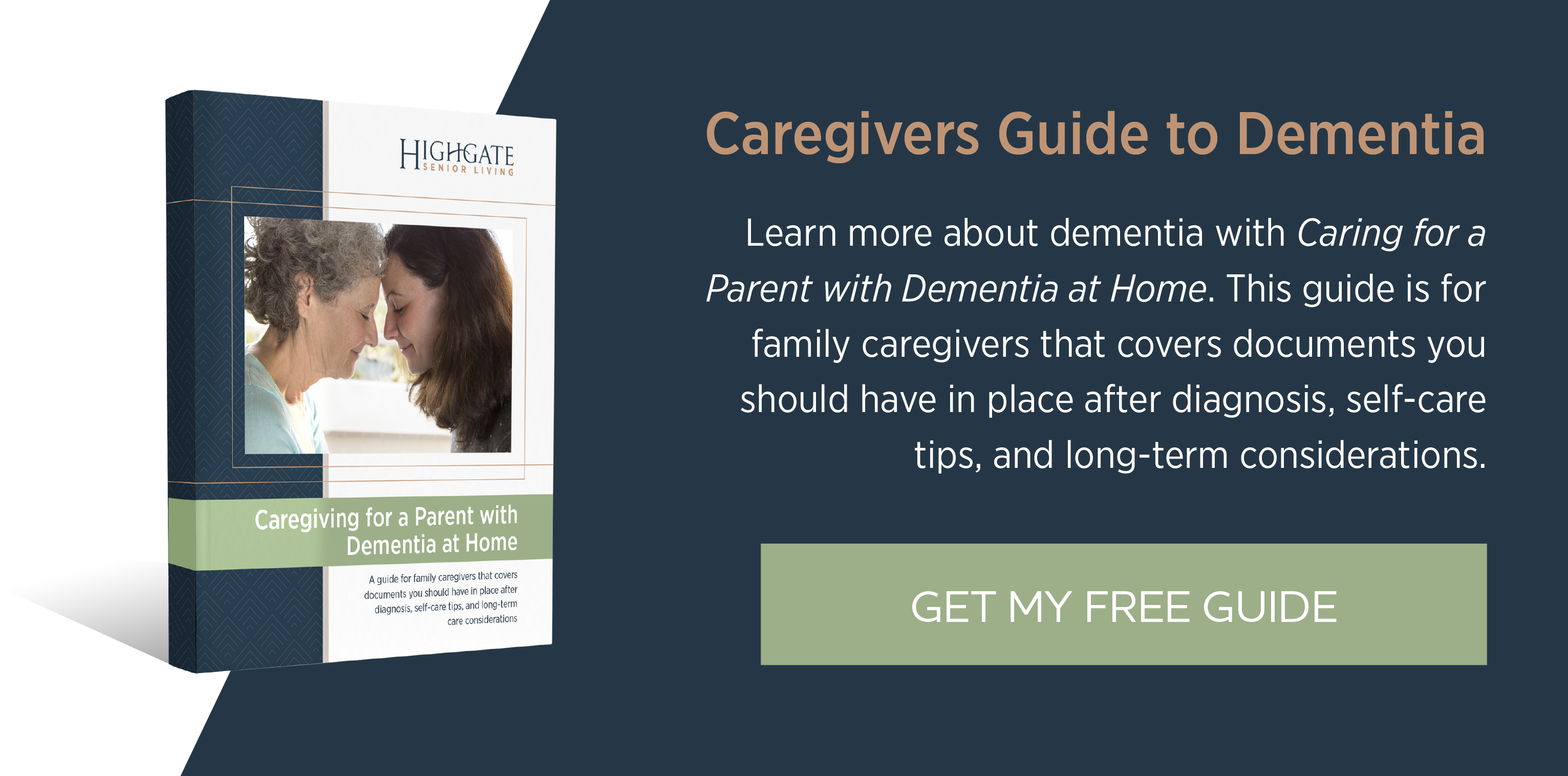
Being a caregiver isn’t for the faint of heart. Especially if you’re caring for someone with dementia. People with dementia often require a higher level of care needs. It’s an emotional and physically demanding job. But seeing your mom smile for the first time in a few days after helping her get dressed and ready for the day – those are the moments you wouldn’t trade for anything. While you treasure those moments, you can also feel worn out from repeating yourself 10 times every hour because she can’t remember what you said. These are normal feelings to experience and know that you aren’t alone. There are about 34.2 million Americans who have provided unpaid care for an adult age 50 and older.
Finding a way to cope with your emotions can help you from experiencing caregiver stress or burnout. It’s essential for your own mental and physical health to have an outlet to discuss your own feelings. You spend so much time caring for your mom, leaving little to no time for yourself. When you have support from others who are going through the same situation as you, it gives you a way to cope and relate to them.
Joining a Caregiver Support Group
Finding a caregiver support group to join will give you a space to connect with other caregivers who truly understand what you’re going through. Support groups offer you a place to:
- Share your feelings and concerns
- Lean about resources in your community
- Discuss information on caregiving problems and possible solutions
- Learn coping skills
If your loved one has Alzheimer’s, you can find a local support group by visiting the Alzheimer’s Association website. All the meetings are led by a trained individual and many locations even offer specialized support groups for adult caregivers or other specific needs. If you can’t make it to a meeting or they don’t have one in your area, they have an online message board and chat room available 24 hours a day.
Check with your local hospital or community center to find out more information about other local support groups.
Benefits of Caregiver Support Groups
Not only does being in a support group connect you with other caregivers, it gives you the time to reflect and re-energize. As a caregiver, you’re always focused on meeting someone else’s needs. It can be difficult to take the time for yourself and talk with others about how you are actually feeling. Having a support group gives you a set time and place to talk about it. Here are a few other benefits of support groups:
- Feeling less lonely and isolated. People in your group truly understand what you’re going through. You don’t have to try and hide a feeling, you can be honest about being frustrated with your mom. They aren’t there to judge you, only to help and lift you up.
- Gaining practical advice and information about your situation. Talking to a professional who has experience with dementia or Alzheimer’s better equips you as a caregiver.
- Improving your caregiving skills. Rather than getting frustrated with yourself about your mom having a bad afternoon, you have a place to vent and talk with others about how they would’ve handled that situation.
Your support group may start to feel like a family. It’s more than just sharing your name and favorite book. You’re talking about your loved one who is suffering with dementia and your everyday life. The connections you make can last a lifetime outside of your regular scheduled meetings.
With any life-changing diagnosis like dementia, emotionally you will have good and bad days. Having the support from others can help you celebrate the good moments and lean on them during the sad times. If you’re nervous about attending a meeting alone, invite a family member or friend to go with you. Taking the time to connect with others in person or virtually may be just what you need.






